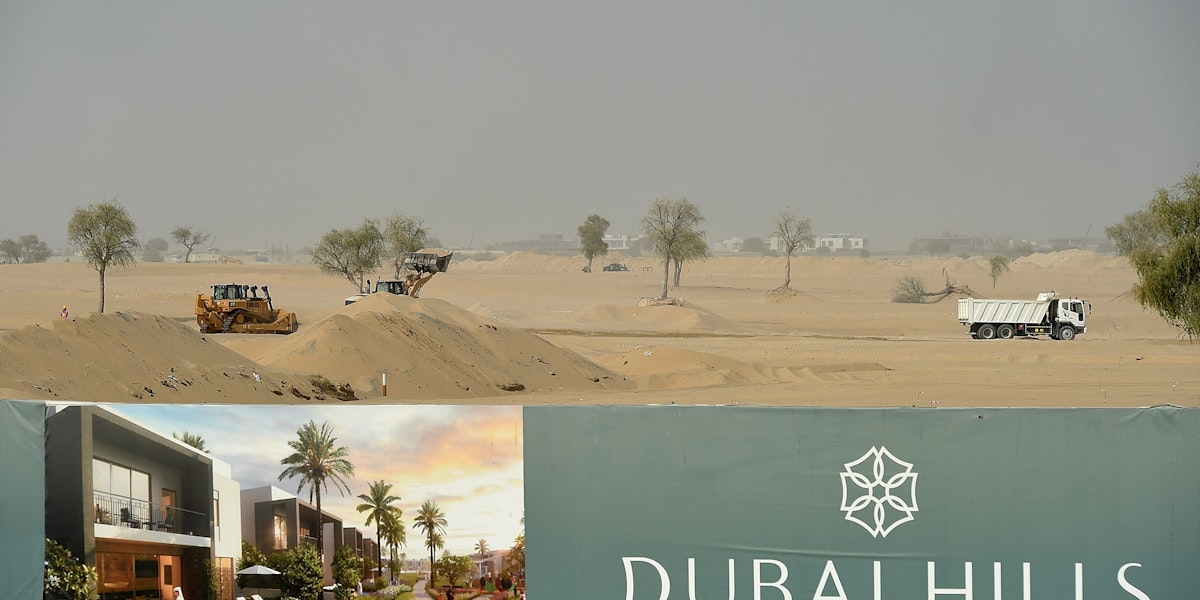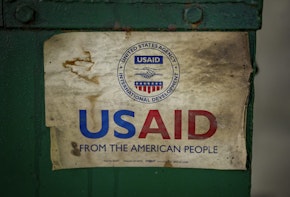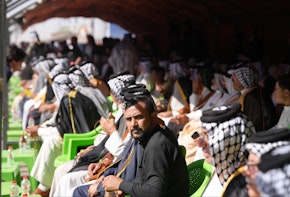In recent years, journalists in Egypt have fallen afoul of the state while covering almost every environmental issue imaginable. One reporter was beaten for reporting on toxic waste dumping along the Nile.1 Another was repeatedly harassed by state security for revealing the cement industry’s contribution to Cairo’s poor air quality.2 At least half a dozen more have encountered trouble while documenting everything from trash-ridden irrigation canals in the Nile Delta to rural land grabs.
It’s a similar story in Iran, where many environmental topics have become all but impossible to report. Once upon a time, Abbas (not his real name), a veteran journalist, crisscrossed the country to photograph endangered wildlife, water scarcity, and other environmental topics. But bit by bit, such reporting has become difficult. Water stories are increasingly complicated. Just working in isolated borderlands can be enough to arouse the suspicions of Iran’s Islamic Revolutionary Guard Corps.3 After one risky run-in too many, Abbas came to a crushing realization. “You cannot work in [environmental reporting] anymore,” he said. “It’s dangerous. It’s like reporting on the military.”4 These days, he mostly works weddings.
Once considered a comparatively safe beat, environmental journalism in swathes of the developing world has experienced a dramatic change of fortunes over the past decade. Its practitioners are getting killed in greater numbers than ever before. They are getting attacked and harassed and jailed more frequently. At the same time, environmental journalists are often in even more dire economic straits than many of their media counterparts.
The crackdown on environmental journalism is particularly jarring for reporters in the Middle East, where conflict, chaotic or brutal governance, and some of the worst manifestations of climate change have created a perfect storm for environment-focused media. But in other regions, too, there is a fierce and often deadly backlash against those who document growing environmental degradation. Since 2010, at least ten and possibly well over forty environmental journalists have been killed worldwide, and many times that number have been attacked, beaten, or jailed.5 However, the true toll is likely even higher, advocacy groups say. Some murders go undocumented because they happen in distant, easily hushed-up settings, while other victims are listed as activists rather than journalists. Hundreds, if not thousands, of environmental reporters around the world have changed beats or dropped out of journalism altogether because of the dangers and hardships.6
Environmental reporters around the world have changed beats or dropped out of journalism altogether because of the dangers and hardships.
This report is based on interviews with more than seventy environmental journalists, editors, and conservationists across more than twenty-five countries—and on the author’s own experience as a journalist covering environmental issues for some eight years. Most interviewees’ identities have been concealed and, in some instances, names changed for safety reasons. All around the world, the research reveals a pattern. Environmental reporting is more important than ever—for economies, societies, and peace and stability. But precisely because speaking the truth about the environment is increasingly and unavoidably political, governments and powerful businesses are fighting coverage of this decline like never before.
The imperative for international organizations and liberal governments is clear. They must fund environmental journalism, protect and train reporters, and elevate the importance of their work. The international community needs to tackle rogue businesses, many of which are susceptible to outside pressure. It needs to show rogue governments that their abuses come at a cost. Without these measures, much of the global environment will continue to disintegrate even more quickly than it otherwise might. But with a detailed understanding of the problem, it may yet be possible to diagnose the most effective steps to support stronger environmental journalism across the world.
A Vicious Loop
The crackdown on environmental journalism has severe costs for societies. The more journalists are cowed or otherwise unable to report, the less coverage of pollution and climate stresses in many of the places that are experiencing the greatest troubles. Many millions of people are suffering as a consequence. And the more environmental disasters are left to fester in relative silence, the less likely countries are to tackle these potentially existential crises before they mushroom beyond manageability. In what is turning into a vicious loop, environmental degradation appears to be fueling repression, just as the ensuing dearth of coverage accelerates degradation.
So far, at least, repressive leaders have suffered few consequences for their behavior, and many appear emboldened by the lack of accountability. The root causes of this repression vary considerably from country to country. But it is no coincidence that, in each place, repression is playing out against a shared and devastating backdrop of deteriorating press freedom, collapsing media finances, and expanding environmental degradation.
Some governments resent the reputational damage that they feel arises from coverage of their crumbling landscapes—and they have been quicker to stifle it as a consequence. By recent counts, over 75 percent of the earth’s land is now degraded, and a million species threatened with extinction due to human activity.7 Other governments fear mounting public anger as their environments deteriorate and citizens’ access to natural resources wavers. In signature authoritarian behavior, many are shooting the messengers rather than addressing grievances.8 Almost all dread the loss of economic growth that they believe environmental protection necessarily entails—despite ample evidence that stable, long-term economic development requires stewardship of the environment. Governments suppress news of development’s hidden costs.9
Industry, too, has grown more intolerant of hard-hitting coverage. Often acting in collusion with the state or individual officials who have vested financial interests, firms are more litigation-happy and seemingly more inclined to repress journalists themselves. Where governments are not in league with businesses, they still do little to stop their abuses. Reporters from India to Iran to Ecuador say that miners, loggers, agribusinesses, and others are acting with unprecedented impunity.
This frenzy of environmentally damaging activities may actually be accelerating because of a perception that time is running out for resource-intensive industries. At some point, there will be no more forest to clear, or light regulations to exploit, as higher environmental costs propel unrest and force tighter controls on business activities. Extractive industries seem to have calculated that they need to double down while they still can.
“Many of them are just in it for whatever they can get before the curtain comes down,” said Patrick Parenteau, a professor at Vermont Law School, referring to fossil fuel companies. “They’re rolling out every last dollar.”10
With much of the worst destruction centered on isolated rural communities, big city news outlets and their audiences are often uninterested in or unaware of environmental problems.
Media bosses often aren’t much help, either. With stagnant or shrinking budgets, they are frequently averse to spending scarce funds on sometimes expensive and un-click-friendly environmental investigations. And with much of the worst destruction centered on isolated rural communities, big city news outlets and their audiences are often uninterested in or unaware of environmental problems. Given that many media outlets in the developing world are also either owned by industrial groups or highly dependent on them for advertising revenue, some editors dare not risk coverage that might threaten the survival of their outlets.
Menaced by authorities and big business, and hostage to their own financial weakness, media outlets are failing to fulfill their watchdog functions at the environment’s time of greatest need.
Intolerant States
Even in states with histories of press abuse, environmental journalists had, until relatively recently, been given a wider berth than many of their peers. The environmental beat was considered too soft, unthreatening, and fringe to concern some authorities. Besides, there was seldom enough public interest to generate the kinds of outrage that officials often fear. But that has changed as global environments have deteriorated.
Much of this repression is seemingly fueled by rising rentier state fears that environmental journalism threatens the lifeblood of their economies. In South Sudan, where authorities rely on oil for most revenues, a reporter was detained and tortured before fleeing abroad in 2019 because of his coverage of worsening pollution. By prying into the health consequences of oil spills, he was “endangering the country’s national security,” interrogators told him.11 In Latin America, reporters say their coverage of the region’s huge and heavily damaging extractive industries can be viewed almost as treachery by officials who see job creation and conservation as largely opposing forces—and always favor the former.12
Regime fears extend to climate coverage, too. Among the Gulf Arab petro-states and other energy-dependent countries, uneasy officials have allegedly pressured dozens of publications to soft-pedal coverage of global warming and other environmental woes in an apparent bid to stall growing public concern. Fossil fuels are, of course, some of the biggest contributors to climate change. Mina Al-Oraibi, the editor-in-chief of The National, an English-language newspaper in the United Arab Emirates, emailed colleagues last year with instructions to halt reporting on campaigns against single-use plastics, a measure that reporters there construed as censorship.13 “Stories on plastics for the time being can’t run,” Al-Oraibi wrote. “This applies to all sections.” The publication said the stoppage was due to editorial planning and that it has since run a number of stories on this topic.14
Yet state impulses often go well beyond these blunt, if sometimes rational, strategic calculations. Governments, particularly those with pronounced authoritarian streaks, frequently dread poor press for fear of losing even more legitimacy with their people. Thus, governments respond harshly to reports on dirtier rivers, dirtier air, and shrinking forests. Egyptian journalists who have covered the Nile’s flagging water quality are sometimes reminded of their “patriotic duty” by security officers and instructed not to “make things sound so bad.”15 The Iranian government has taken a dimmer view of coverage of resource shortages in general since the 2018 protests, which were propelled, in part, by water scarcity.16
No one is more acutely aware of the political sensitivities of reporting on the environment than Syrian journalists. Under the thumb of the most insecure of regimes, they have had no choice but to downplay environmental disorder for decades. “It is not OK to say that Syria is suffering a shortage of water, since it will show it as a weak state versus Israel,” said Muhammad Fares, a longtime environmental journalist from the Damascus area, who is now living in exile.17
It is not OK to say that Syria is suffering a shortage of water, since it will show it as a weak state versus Israel,” said Muhammad Fares, a Syrian journalist.
Then there are the face-saving instincts of local officials. To report on water pollution in parts of rural China, for example, journalists must contend with frequent hassle and obstruction from provincial bureaucrats, who fear for their careers if they look ineffectual to their superiors. Such officials often go to extreme lengths—including beatings and death threats—to stifle coverage. “In the Chinese political system, everything is linked to their political performance, like a child at school, so anything negative reflects badly on them,” said Karoline Kan, a Beijing-based environmental reporter.18
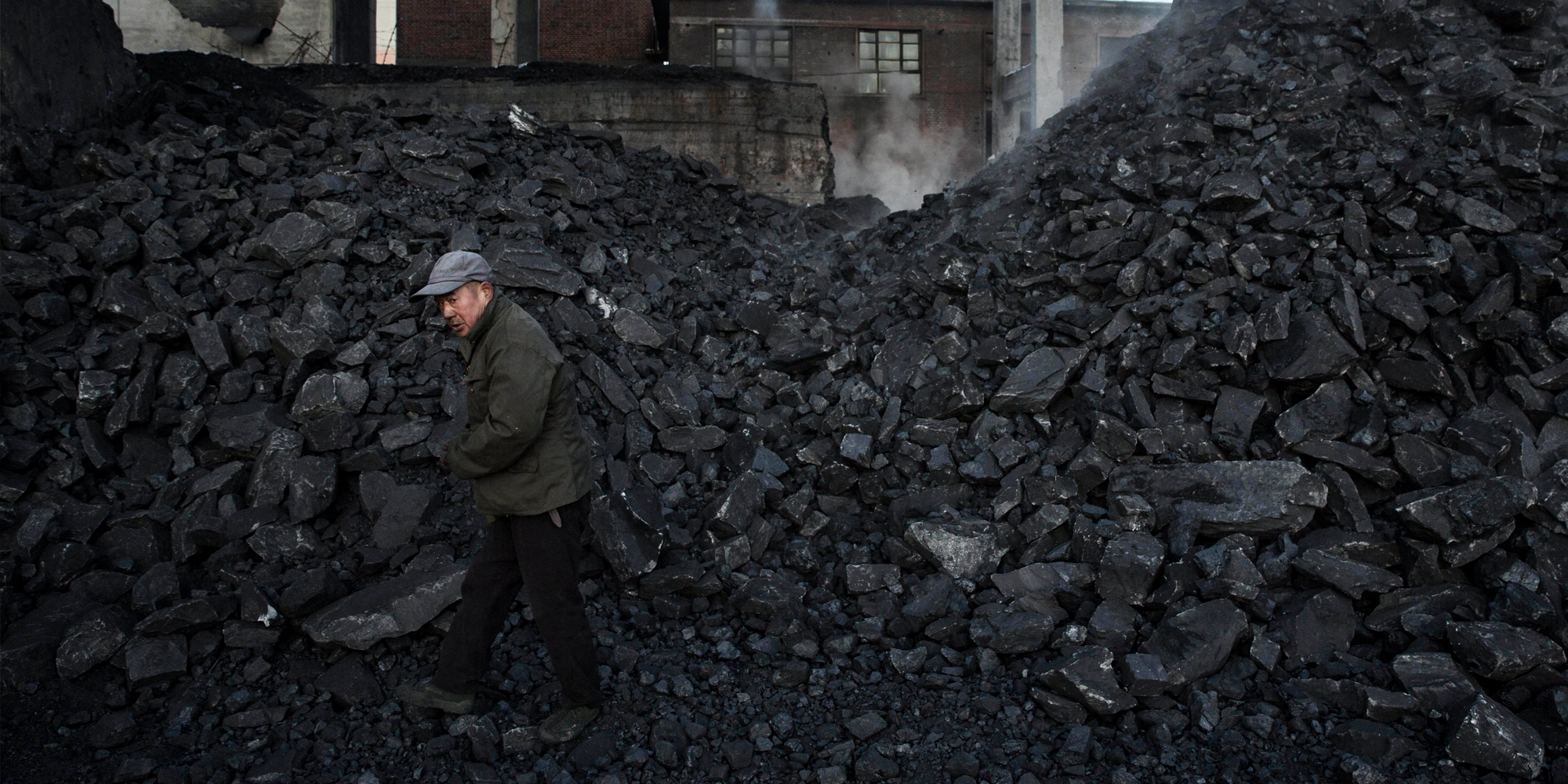
The wrath of provincial bureaucrats is a special threat to environmental journalism in China and many other countries because many of the worst environmental abuses happen within the purview of small-town or regional bureaus. Journalists attempting to report on such abuses are intensely vulnerable to mistreatment by unaccountable local authorities, operating in rural areas where they can get away with more drastic forms of retaliation. Though data is limited, an analysis of Reporters Without Borders data suggests these local reporters account for the lion’s share of murder victims. Other journalists, keen to avoid that fate, sometimes bury vital stories, or dilute them so much that they are meaningless. “They might decide not to pitch a story, not to send it up the transom because it could be a risk,” said a former editor of a Delhi newspaper. “After all, they have to live there.”19
Unsurprisingly perhaps, this intolerance of reporting can be particularly pronounced when officials’ own pocketbooks are on the line. In a variation of a frequently told tale, local contractors and their political benefactors repeatedly threatened the family of a Bangladeshi journalist after his reporting held up the construction of a major but poorly conceived irrigation canal, and thereby deprived them of a fat payday.20 Those who investigate politicians’ personal farms, quarries, and factories in Lebanon have received similar treatment.21 There are some finances that even the most intrepid of reporters know to avoid. To threaten the interests of the militaries of Egypt, Indonesia, Iran, and elsewhere can be unjustifiably dangerous—regardless of their environmental impact.
Corporate Machinations
Amid deteriorating global press freedom, many environmental journalists say they imagined it was only a matter of time before states came for them. What many say they hadn’t banked on, however, was an uptick in repression from other actors, notably the industries whose economic welfare governments are so desperate to safeguard. These corporations and some smaller businesses often share a distaste for potentially meddlesome investigations. In recent years, as the impact of polluting and extractive industries on the global landscape has become more marked and reporting on their influence has become more forceful, they’ve been less shy than ever in tackling media head on.
Environmental journalists say that businesses in Pakistan are getting bolder in calling on friendly security personnel to intercede on their behalf if or when investigations get too close for comfort. Journalists in India say business bosses are enlisting government allies with greater regularity to warn off the publishers of stories they deem displeasing. “The paramount fear is to give offence to the government,” a senior Indian journalist said. “And a lot of these companies—mining, coal, and others—have government patrons who have the power to harass your owners.”22 Elsewhere, reporters tell a consistent story of deepening public-private collusion to stymie environmental coverage.
“A lot of these companies—mining, coal, and others—have government patrons who have the power to harass your owners,” said a senior Indian journalist.
On occasions when governments do not intervene against reporting, corporations appear to have few qualms about suing journalists to stave off or punish disagreeable coverage. Such lawsuits can be particularly potent weapons against penniless media outlets within legal systems and in courts that dozens of interviewees perceive as being more business-friendly than ever. Corporate charges against journalists can also trigger government action. In the past two years alone, several Indonesian journalists have been charged with defamation for reporting on land grabs by coal or palm oil conglomerates. In one case in 2018, a journalist died in police custody.23 In another, a journalist was detained this May for alleged defamation against the Jhonlin Group, a major agribusiness.24
If litigation fails, businesses large and small appear only too keen to get their hands dirty—bribing, smearing, or worse. When a Georgian outlet published an investigation into a coal mine that was damaging nearby villagers’ houses, the company responded with a weeks-long campaign to discredit its reporting.25 Two radio journalists in El Salvador were killed and a number of their colleagues threatened soon after they started campaigning against a Canadian coal mine.26 Editors are increasingly unwilling to countenance the risk of violence that accompanies reporting on industries like logging and agribusiness. “We always have security concerns when it comes to covering issues like illegal mining or narcos [operating] in protected areas,” said Maria Isabel Torres, the program manager of Mongabay-Latin America, an environment-focused digital outlet. “We have to be very aware of the danger.”27
The global climate crisis, with the dangers it poses to all, might be expected to change corporate attitudes toward environmental concerns. In many cases, however, the opposite is true. Anticipating more restrictive conditions in the future, many large corporations appear determined to go all out now. Many smaller, less sophisticated enterprises—such as informal jungle miners in Brazil and Nile-side brick producers in Sudan—are just trying to make ends meet in places with few alternatives. In both cases, environmental journalists can be seen as infuriating roadblocks to disappearing riches or subsistence income—and are treated accordingly.
In parts of the world where populations continue to grow, like the Middle East, South Asia, and sub-Saharan Africa, many states are desperate for investment, as more young men and women enter the workforce and the need for new jobs becomes even more pronounced. Rhetorically, at least, this drive for jobs has become particularly noticeable since the Arab uprisings of 2011, which some Middle Eastern regimes interpreted as a reflection of the perils of youth underemployment. Still wed, it seems, to the conservation-versus-development paradigm that most experts deem false, these countries are clamoring for as much growth as possible, no matter how polluting or damaging it might be.28 They have little patience for anything that might repel business.
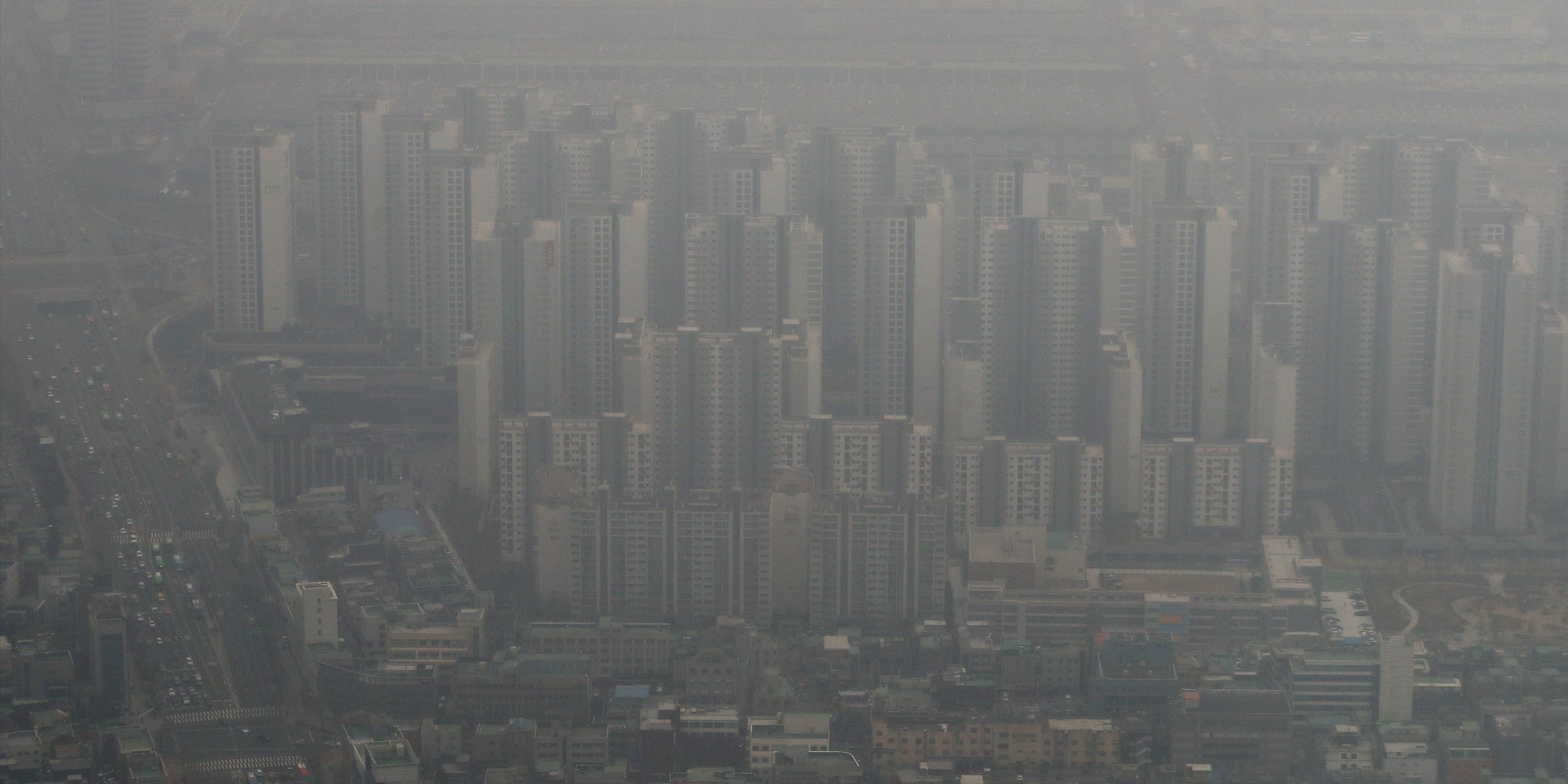
The experience of one Kazakh journalist provides a bitter illustration of state and corporate intolerance of threats to the economic bottom line. By his count, he has been sued fifteen times and arrested twelve times. He was also beaten almost to death by unknown assailants while reporting on dodgy Chinese and domestic corporate practices in Kazakhstan’s oil industry, which accounts for about 40 percent of the state’s revenues.29 “The most sensitive environmental topic of all is water and soil pollution by Chinese companies entering the market,” he said. “Because almost the entire oil industry in Kazakhstan is fraught with corruption.”30
Editorial Obstacles
The majority of interviewees said they might be able to weather worsening repression if there was a supportive and financially sound framework for environmental journalism. For many, however, the media’s notoriously broken business model and sometimes tortured decision-making are a final blow at a time when intensifying global environmental degradation ought to be elevating their beat.
News bosses across the Middle East, sub-Saharan Africa, and elsewhere say that environmental investigations can be prohibitively expensive to report because of the time and travel that they sometimes require. With shrinking budgets, many feel they can’t justify the cost for stories that are unlikely to generate the same kind of Web traffic or interest as more cheaply reported subjects. “Media owners and editors on the continent argue that they have no money to carry out comprehensive coverage such as deep investigations on [the] environment,” wrote Fredrick Mugira, an environmental journalist and media coordinator in Uganda, in an email. “So they opt to concentrate on easy-to-cover issues such as sports and politics.”31
Arguably, this opposition to devoting scarce resources to environmental projects is particularly marked because some media gatekeepers are too urban-centric to fully grasp the depth of rural destruction, or too environmentally illiterate to understand some of the consequences.
Some media gatekeepers are too urban-centric to fully grasp the depth of rural destruction, or too environmentally illiterate to understand some of the consequences.
Even when editorial bosses are on board, business concerns of a different sort can stymie coverage. Many publications are either owned by industrial outfits, like the Bakrie Group in Indonesia, which naturally aren’t inclined to call out their own abuses, or are more dependent than ever on such firms for advertising revenue, as circulations drop.32 Alienating tycoons can subsequently mean the difference between business life and death. “People who run their industries on fossil fuels like petrol and coal could stop ads to newspapers if they see the coverage of climate reporting is damaging to their businesses,” a Pakistani editor in chief said. “We can’t risk that.”33
Another challenge is that state propaganda disguised as journalism can damn independent coverage by association. As resource shortages become more pronounced, governments are also wising up to the usefulness of crafting politically expedient environmental narratives of their own. In Egypt, for example, security officers have instructed reporters at state-owned and private media outlets to alternately talk up or minimize the extent of the country’s water problems, depending on the state of its negotiations with Ethiopia over the Nile River over the past few years. (The two countries have been at loggerheads over Ethiopia’s upstream dam construction for almost a decade.)34 How, a Cairo journalist mused, are readers or viewers to stay engaged with environmental problems when subjected to such radically conflicting messaging?35
But perhaps the single most frustrating difficulty facing environmental journalism is a cumulative consequence of all its problems. Because journalists sometimes have restricted access on the ground and insufficient access to data due to state obstructionism, supporting photos and headline-grabbing statistics can be in short supply. And due to budget constraints, stories can be less compelling than they ought to be: reporters are rarely granted enough time to report on what are often tricky investigations across multiple fields. When combined with scared journalists pulling their punches for fear of the consequences, environmental journalism can come across as boring and irrelevant. No editor is inclined to commission dull work.
“Environmental programs are not interesting for newspaper or TV bosses,” an Iranian journalist said. Such reporting “has to pass through the filter of the system, and maybe it’s ruined after that.”36
Out of Chaos, Revived Fortunes?
Despite the best efforts of myriad journalists, the beat is at a nadir in many of the regions where environments are disintegrating most dramatically. And, in the short term, at least, COVID-19 looks set to amplify environmental journalism’s troubles at every level.
A number of governments, including Donald Trump’s United States and Jair Bolsonaro’s Brazil, have loosened environmental regulations with the claim that they are stimulating the economy. The deep economic pain and distraction of the pandemic means that their claims are receiving less pushback than they otherwise might.37 A planet in depression will likely be even more tolerant of growth at any cost, and even more intolerant of anyone who is seen as slowing that process. China’s increasing distaste of environmental reporting as growth has weakened in recent years offers some hints as to what COVID-19 might mean in authoritarian countries. “Since the Chinese economy has slowed down, it’s kind of censored [to talk about root causes of pollution],” said Kan, the Beijing-based reporter.38 “There’s a thinking that maybe it’s time to point to the problem less aggressively.”
There’s every likelihood, too, that environmental journalism will suffer during this economic crunch, as it did after the 2008 recession. Membership of the Society of Environmental Journalists (SEJ), an American trade group, dropped around 25 percent in the years following that crash, before rebounding, while publications from the Philippines to Peru shed their environmental news desks.39 If nothing else, global environmental journalism may follow the example set in many Western countries, where it’s become largely the preserve of big city outlets, which don’t necessarily have a nationwide presence, and freelancers, who can be particularly susceptible to state or business violence. Based on anecdotal evidence, freelancers might already be even more over-represented than local reporters among environmental journalist killings.
Freelancers might already be even more over-represented than local reporters among environmental journalist killings.
In the long run, however, the environmental beat’s prospects appear rosier—largely because the fortunes of the global environment don’t. Reporters in cities like New Delhi, Dhaka, and Karachi are finding new audiences, as previously switched-off residents wake to the health, economic, and lifestyle perils of poor air quality.40 In Beirut, the city’s garbage crisis in 2018 engaged more Lebanese on the country’s wider pollution and waste management crises.41 As climate stresses ensnare more people across more regions, environmental journalists say that affected communities are tuning in or reading relevant coverage in greater numbers and with greater regularity.
“Our success is due to increased manifestation of the effects of climate change on communities. This has made the story of [the] environment prominent in African countries,” wrote Mugira, the Ugandan journalist. “Now the audience wants more information on how they can adapt.”42
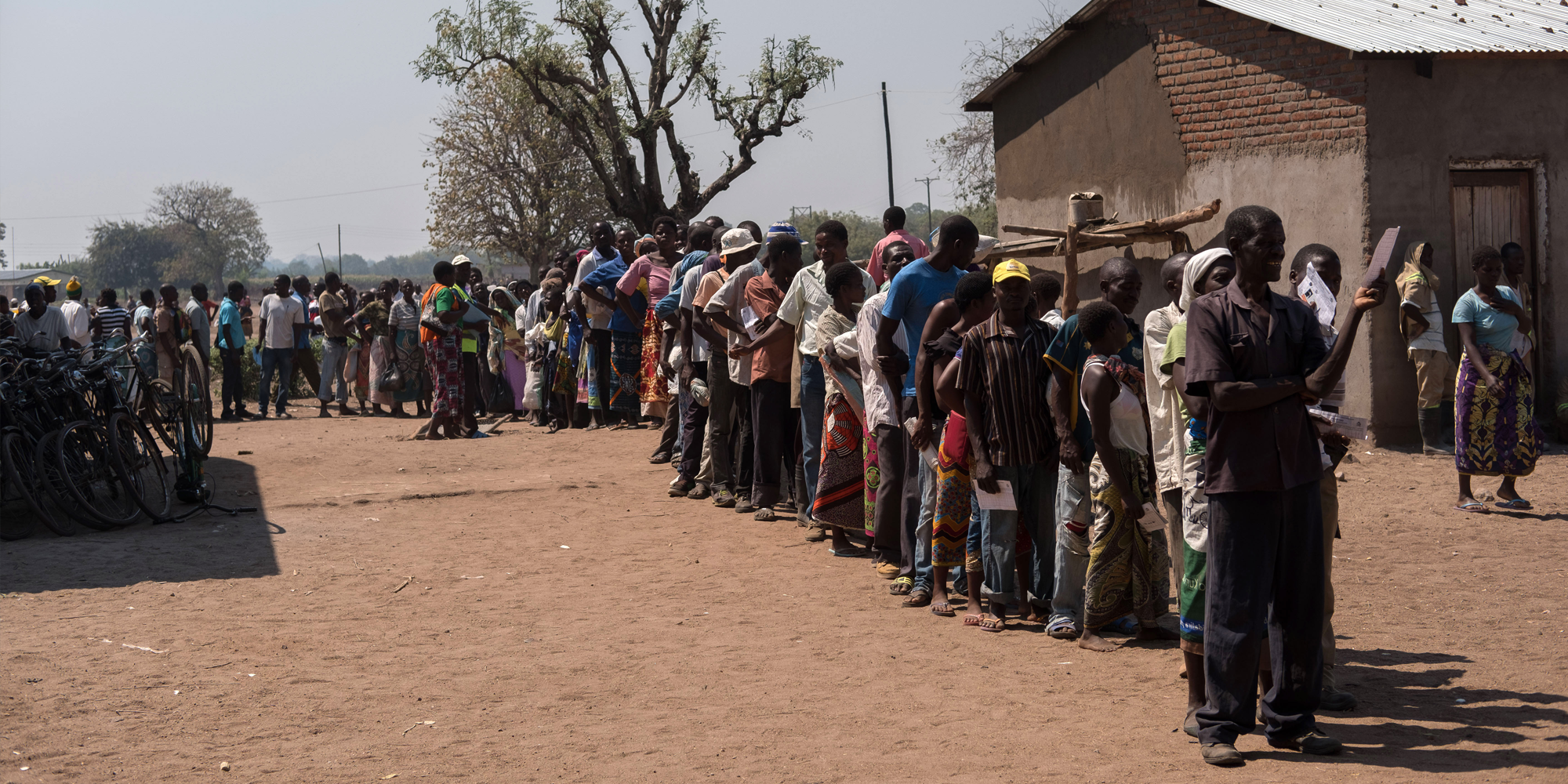
But more than anything, environmental reporters place particular hope in younger readers and some newer, bolder outlets. These younger news consumers are, on average, more interested in the environment, according to editors in Indonesia, Mexico, and Iraq. Punchier new outlets, like Mada Masr in Egypt and Scroll in India, are competing in areas where many feel traditional media have failed. Together, they’re fueling unprecedented concern in many of the countries where it’s most desperately needed. “Working on the environment in India, you used to know everyone,” said Aruna Chandrasekhar, an environmental reporter who’s spent years covering everything from deforestation to coal mining in central India. “But now there’s definitely a new crop of journalists. I see so many people filing on climate.”43
Like most of her peers, she has just one big question: Can these changes come quick enough to avert large-scale environmental catastrophe?
Moving Forward
Though it’s tricky to draw clear lines between deteriorating media freedom and crumbling global landscapes, the two certainly seem to feed off one another. Countries with poor media freedom are among the most vulnerable to climate change—and vice versa.44 Countries that are suffering from some of the worst air and water pollution routinely rank among the most prolific jailers of journalists.45 By the messy, frequently myopic calculus of authoritarian leaders, environmental protections and the reporters who cover them are just different sides of the same undesirable coin.
As one Sudanese activist put it: “People suffer because the journalist can’t do his job, the journalist suffers because the minister doesn’t want bad things published, and the minister suffers because he has to govern a broken country.”
Ultimately, in this dance to the death, everyone loses out. Indeed, many already are. Up to 95 percent of the global population breathes bad air, more than two billion people drink bad water, and increasing numbers are getting displaced due to environmental degradation, or dying from environment-related instability.46 As one Sudanese activist put it: “People suffer because the journalist can’t do his job, the journalist suffers because the minister doesn’t want bad things published, and the minister suffers because he has to govern a broken country.”47
But the current crisis will pale in comparison to the chaos many states will face unless there’s a sea change in attitudes. Having fostered political cultures in which environmental protection and environmental voices are unvalued or unwelcome, many officials in Egypt, Iran, and elsewhere appear blissfully unaware of the extent to which worsening climate stresses will hobble everything from economies to the social fabric and security. In their news-less voids, many have seemingly accepted their own public assurances. As environmental woes worsen, the impact in states that are already reeling from conflict and economic catastrophe may very well plunge some deeper into crisis, even as they jail journalists for warning of brewing disasters. Press freedom, sometimes spoken of as a luxury, is anything but.
Western countries have frequently lectured developing countries in accordance with their own priorities, while often failing to live up to these lofty ideals. This is perhaps now truer than ever. However, the case for environmental journalism is a topic on which the West should be vocal, because it is grounded in mutual self-interest every bit as much as it is a moral argument. By calling out governments that are guilty of harassing reporters, the United States and Europe might prevent some of the world’s worst environmental self-harm and consequently help alleviate pressure on these states’ collapsing environments. Given that the environment is still, for the most part, considered a less charged subject than past global “fashions,” such as human rights or domestic political reforms, some governments might brook greater criticism in this field than they would in others.
Western governments should adopt a stricter approach, too, toward corporations with ugly records of stifling coverage. Many of these firms are Western or operate within Western countries, giving authorities the clout, the responsibility, and—again perhaps—the self-interest to change their ways. Nasty anti-media tactics have an unfortunate habit of spreading if left unchallenged, as American environmental journalists have already discovered, to their horror. After writing an article that displeased Monsanto, the U.S. agrochemical giant, Carey Gillam, a reporter in the Midwest, was relentlessly hounded for months by a Washington, D.C. public relations firm acting on behalf of the company.48
“The fear and the threat in the United States have escalated,” said Meaghan Parker, executive director of the SEJ.49 “The online harassment has increased, and the fear it’s engendered has greatly increased. It’s a more hostile environment.”
Above all, though, global environmental journalism needs money. Without it, no manner of safe reporting circumstances will be sufficient. International foundations, such as the Pulitzer Center for Crisis Reporting and the Earth Journalism Network, have already funded the expenses for hundreds of vital stories and conducted frequent, much-needed environmental journalism training sessions across the world. But local reporters—and their international benefactors—need much more. This, too, can be a matter of self-interest. Much like conflict, crumbling environments in one place frequently lead to no end of problems in others.
This report is a part of “The Future of Governance in Eroded States: Managing Fragmentation and Its Consequences in the Middle East,” a multi-year TCF initiative supported by the Carnegie Corporation of New York.
The construction site of Dubai Hills Estate in September 2016 in Dubai, United Arab Emirates. The economic crush of the pandemic may make states less likely to question the environmental costs of economic growth. Source: Tom Dulat/Getty Images
Notes
- “Report—Environmental Journalism in an Increasingly Hostile Climate,” Reporters Without Borders (RSF), May 2, 2016, https://rsf.org/sites/default/files/rapport_environnement_en.pdf.
- Journalist, interview with the author, Cairo, Egypt, January 2020.
- Peter Schwartzstein, “The Middle East’s Authoritarians Have Come for Conservationists,” The Atlantic, March 30, 2019, https://www.theatlantic.com/international/archive/2019/03/middle-east-north-africa-environmentalism-espionage/585973/.
- Journalist, interview with the author by phone, March 2020.
- Identifying environmental journalist deaths is notoriously difficult because media advocacy groups seldom categorize the beats of targeted reporters. But Reporters Without Borders (RSF) documented at least ten confirmed murders between 2010 and 2015, while the Green Blood Project, a consortium of European news outlets and the Committee to Protect Journalists, found up to twenty-nine between 2010 and 2019. See RSF, “Environmental Journalism;” and “Environmental Scandals,” Forbidden Stories/Green Blood Project, 2019. https://forbiddenstories.org/case/green-blood/. At least 164 environmental defenders were killed in 2018 alone, according to Global Witness, including an unidentified number who also report on environmental abuses. “Enemies of the State?,” Global Witness, July 30, 2019, https://www.globalwitness.org/en/campaigns/environmental-activists/enemies-state/.
- Eric Freedman, “In the Crosshairs: The Perils of Environmental Journalism,” Journal of Human Rights, May 12, 2020, https://www.tandfonline.com/doi/abs/10.1080/14754835.2020.1746180?journalCode=cjhr20.
- “Nature’s Dangerous Decline ‘Unprecedented,’ Species Extinction Rates ‘Accelerating,’” Intergovernmental Science-Policy Platform on Biodiversity and Ecosystem Services, May 2019, https://ipbes.net/news/Media-Release-Global-Assessment.
- Peter Schwartzstein, “The Middle East’s Authoritarians Have Come for Conservationists,” The Atlantic, March 30, 2019, https://www.theatlantic.com/international/archive/2019/03/middle-east-north-africa-environmentalism-espionage/585973/.
- Piero Visconti et al., “Projecting Global Biodiversity Indicators under Future Development Scenarios,” Conservation Letters, January 6, 2015, https://conbio.onlinelibrary.wiley.com/doi/full/10.1111/conl.12159.
- Interview with the author by phone, March 31, 2020.
- Journalist, interview with the author by phone, March 6, 2020.
- Bruno Takahashi, interview with the author by phone, May 13, 2020.
- Internal correspondence viewed by the author, October 2019.
- Mina Al-Oraibi, correspondence by email, May 2020.
- Journalist, interview with the author by phone, March 12, 2020.
- Sara Mazloumsaki, “One Injured in Iran Water Protests, Interior Minister Says,” CNN, July 1, 2018, https://www.cnn.com/2018/06/30/world/iran-water-protest-deatj/index.html.
- Muhammad Fares, interview with the author by phone, January 18, 2020.
- Karoline Kan, interview with the author by phone, May 9, 2020.
- Editor, interview with the author by phone, April 28, 2020.
- Journalist, interview with the author by phone, March 26, 2020.
- Habib Battah, interview with the author by phone, May 7, 2020.
- Journalist, interview with the author by phone, March 2020.
- Hans Nicholas Jong, “Indonesia to Investigate Death of Journalist Being Held for Defaming Palm Oil Company,” Mongabay, June 21, 2018, https://news.mongabay.com/2018/06/indonesia-to-investigate-death-of-journalist-being-held-for-defaming-palm-oil-company/.
- Eko Wahyudi, “Journalist Arrested in Alleged Violation of the Infamous ITE law,” Tempo, May 5, 2020, https://en.tempo.co/read/1338786/journalist-arrested-in-alleged-violation-of-the-infamous-ite-law.
- Georgian journalist Mariam Nikuradze, interview with the author by phone, April 30, 2020.
- “Report—High-Risk Subjects: Deforestation and Pollution,” RSF, June 2010, https://rsf.org/en/IMG/pdf/RSF_Report_Environment-2.pdf.
- Maria Isabel Torres, interview with the author by phone, May 11, 2020.
- Visconti et al., “Projecting Global Biodiversity Indicators.”
- Assel Satubaldina, “Oil Price Plunge May Bring Kazakh GDP Down 2.7 Percent,” Astana Times, May 14, 2020, https://astanatimes.com/2020/05/oil-price-plunge-may-bring-kazakh-gdp-down-2-7-percent/.
- Journalist, correspondence with the author by email, April 2020.
- Correspondence with the author by email, February 2020.
- Wahyu Dhyatmika, “Who Owns The News In Indonesia,” Nieman Reports, December 11, 2014, https://niemanreports.org/articles/who-owns-the-news-in-indonesia/.
- Journalist, interview with the author by phone, April 7, 2020
- “What’s behind the Egypt-Ethiopia Nile Dispute?,” Al Jazeera, January 26, 2020, https://www.aljazeera.com/programmes/start-here/2020/01/egypt-ethiopia-nile-dispute-start-200126115119579.html.
- Journalist, interview with the author, Cairo, August 2019.
- Journalist, interview with the author by phone, February 2019
- Nadja Popovich, Livia Albeck-Ripka, and Kendra Pierre-Louis, “The Trump Administration Is Reversing 100 Environmental Rules. Here’s The Full List,” New York Times, May 20, 2020, https://www.nytimes.com/interactive/2020/climate/trump-environment-rollbacks.html. Jake Spring, “Brazil Minister Calls for Environmental Regulation while Public Distracted by COVID,” Reuters, May 22, 2020, https://www.nytimes.com/interactive/2020/climate/trump-environment-rollbacks.html.
- Karoline Kan, interview with the author by phone, May 9, 2020.
- Meaghan Parker, interview with the author by phone, May 13, 2020.
- Kai Schultz and Suhasini Raj, “New Delhi, Choking On Toxic Air, Declares Health Emergency,” New York Times, November 1, 2019, https://www.nytimes.com/2019/11/01/world/asia/delhi-pollution-health-emergency.html.
- Sophia Smith Galer, “Lebanon Is Drowning in Its Own Waste,” BBC, March 28, 2018, https://www.bbc.com/future/article/20180328-lebanon-is-drowning-in-its-own-waste.
- Correspondence with the author by email, February 2020.
- The non-island states among the “Vulnerability Twenty,” a grouping of twenty self-described vulnerable states, are all among the bottom half of RSF’s 2020 World Press Freedom Index.
- China, Iran, Vietnam, and Saudi Arabia—which are four of the worst jailers of journalists, according to the Committee to Protect Journalist’ 2019 rankings—also host some of the world’s most polluted cities, according to the air quality technology firm IQAir. India, Pakistan, Bangladesh, and Afghanistan—which are four of the five countries with the worst air quality, according to IQAir’s 2019 World Air Quality Report—all fell deeper into the bottom third of RSF’s World Press Freedom Index between 2019 and 2020.
- See “9 out of 10 People Worldwide Breathe Polluted Air, but More Countries Are Taking Action,” World Health Organization (WHO), May 2, 2018, https://www.who.int/news-room/detail/02-05-2018-9-out-of-10-people-worldwide-breathe-polluted-air-but-more-countries-are-taking-action; and “Drinking Water: Key Facts,” WHO, June 14, 2019, https://www.who.int/news-room/fact-sheets/detail/drinking-water#:~:text=785%20million%20people%20lack%20even,dysentery%2C%20typhoid%2C%20and%20polio.
- Environmental activist, interview with the author, Khartoum, Sudan, August 2018.
- Carey Gillam, “I’m a Journalist. Monsanto Built a Step-by-Step Strategy to Destroy My Reputation,” The Guardian, August 9, 2019, https://www.theguardian.com/commentisfree/2019/aug/08/monsanto-roundup-journalist-documents.
- Interview with the author by phone, May 13, 2020.
